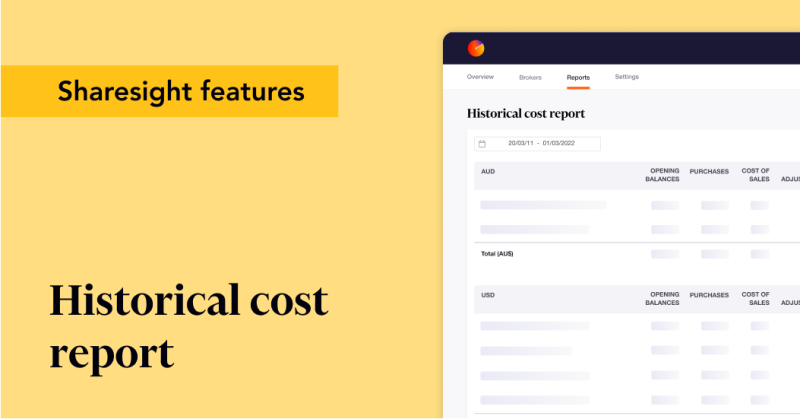ETFs vs. stocks
Disclaimer: This article is for informational purposes only and does not constitute a specific product recommendation, or taxation or financial advice and should not be relied upon as such. While we use reasonable endeavours to keep the information up-to-date, we make no representation that any information is accurate or up-to-date. If you choose to make use of the content in this article, you do so at your own risk. To the extent permitted by law, we do not assume any responsibility or liability arising from or connected with your use or reliance on the content on our site. Please check with your adviser or accountant to obtain the correct advice for your situation.
Stocks and exchange-traded funds (ETFs) are some of the most popular asset classes for investors. Both of these asset classes can be a valuable addition to an investor’s portfolio, however it’s important to understand the key differences between stocks and ETFs and the pros and cons of investing in these assets. Keep reading for more information which may help you decide whether to buy stocks or an ETF.

What’s the difference between a stock and an ETF?
The key difference between stocks and ETFs is that a stock is one security whereas an ETF is a basket of diverse securities that could include stocks, bonds, commodities, futures contracts, currency or other assets. However, there are a few other important differences:
ETFs
An exchange-traded fund, or ETF, is an investment security that gives investors exposure to a basket of stocks (or other assets) in a single trade, similar to a managed or mutual fund. This type of security will typically track a particular index (such as the S&P 500) or focus on a particular sector or asset class, making it easy for investors to increase the diversity of their portfolio. While similar to managed/mutual funds, ETFs are different in that they can be easily purchased on most major stock exchanges. They also tend to be passively managed, with lower management fees.
Stocks
A stock, also referred to as an equity, is a type of security that allows investors to purchase shares of ownership in the issuing corporation. Each share represents fractional ownership of the corporation in proportion to the total number of shares, and entitles the shareholder to a proportion of the corporation’s profits. Bought and sold primarily on stock exchanges, stocks are an easily accessible asset class that is represented in most investors’ portfolios.
Is ETF trading better than stock trading?
If you are wondering whether to invest in an ETF or in stocks, it depends on your general investing strategy and what you are hoping to achieve by making the investment. There are pros and cons to both investment types.
Pros of ETF investing
One of the main advantages of investing in ETFs is the ability to gain exposure to many different companies through one single trade. This is a convenient way for investors to increase their diversification, with the potential to reduce risk and increase returns.
Investors with a more passive approach to investing may prefer ETF investing to stock-picking, as index-tracking ETFs allow investors to match the market, which typically results in higher returns (and less effort) than stock-picking. ETFs also tend to be less volatile than individual stocks, meaning their returns will not swing in value as much as stocks.
Cons of ETF investing
A potential downside to ETF investing is the lack of control an investor has over their investment. For example, an ETF might contain hundreds, even thousands, of different assets and the investor cannot pick and choose which assets are included. And because ETFs are invested in so many different assets, investors may find there is a lack of transparency around the assets held in these funds. Investors should also note that unlike stocks, ETFs incur management fees.
Pros of stock investing
One of the key advantages of investing in stocks is the potential to achieve high returns by picking a stock with growth potential. Compared to an ETF, for example, a stock has the potential to produce higher returns, as ETF returns are based on the weighted average return of numerous holdings, whereas an individual stock’s return is based only on its own performance. In general, investing in stocks gives an investor more transparency and control over their portfolio.
Cons of stock investing
The downside of investing in stocks is that compared to ETFs, stocks require a more active investing approach. Specifically, successful stock-picking typically requires research, and investors must also be careful to stay up-to-date on the latest news regarding the companies, sectors and markets they are invested in.
Investing in stocks also tends to be riskier than investing in an index-tracking ETF, for example. This is because market events can impact the share price of an individual stock more than an ETF, which is made up of numerous diverse assets, only some of which may be impacted by a particular market event.
What's better for beginner investors: Stocks or ETFs?
"For beginner investors there’s nothing like ‘on the job’ education to learn the ropes," says Jarred Sewell, Acting CEO of Hatch Invest NZ.
"Having both stocks and ETFs in a portfolio can help develop hands-on experience and insights into how each type of investment behaves over the short and mid-term. And it can give first-hand understanding of the risks (and rewards!) of investing.
"As for which is the ‘better’ choice, that’s on you. A beginner investor may choose an ETF as their first investment because it provides instant diversity in their portfolio by being spread across multiple companies. Another new investor may prefer a single stock, choosing a company because they back what it does, it aligns with their values, or is at a price they see as good value.
"That’s the beauty of investing at every stage – from beginner to experienced – you’re in the driver’s seat and can choose whatever fits your interests and financial goals."
Summary
The decision to invest in an ETF vs. shares is largely dependent on an investor’s strategy and preferences. Investors who prefer a more passive approach with a focus on diversification may find that ETFs are a more worthwhile investment. On the other hand, investors with a more active strategy and a higher risk tolerance may prefer to invest in stocks. Overall, both assets can make up an important part of an investor’s portfolio, and investors seeking a balanced and diversified portfolio may benefit from holding both of these asset classes concurrently.
Track the performance of your stocks and ETFs with Sharesight
Thousands of investors worldwide are already using Sharesight to automatically track the performance of their investment portfolio. What are you waiting for? Sign up and:
-
Track all your investments in one place, including stocks and ETFs in over 40 major global markets, mutual/managed funds, property, and even cryptocurrency
-
Automatically track your dividend and distribution income from stocks, ETFs and mutual/managed funds
-
Run powerful reports built for investors, including Performance, Portfolio Diversity, Contribution Analysis, Multi-Period, Multi-Currency Valuation and Future Income (upcoming dividends)
-
Get the true picture of your investment performance, including the impact of brokerage fees, dividends, and capital gains with Sharesight’s annualised performance calculation methodology
Sign up for a FREE Sharesight account to start tracking your performance (and tax) today!
FURTHER READING

Sharesight nominated for 2025 Wealth Tech Innovator of the Year
Sharesight has been chosen as a finalist in the 2025 Australian Wealth Management Awards, in the Wealth Tech Innovator of the Year category.

Prepare your annual accounts with our historical cost report
Sharesight's historical cost report is a powerful tool for investors who need to prepare annual accounts or financial statements with mark-to-market accounting.

Sharesight product updates – July 2025
This month's focus was on rolling out predictive income forecasting, as well as improved cash account syncing across different brokers and currencies.